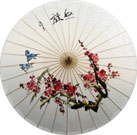| Home > China Feature |
Special Rites of Passage in China
Chinese ancients held to the belief that a true man has a dignified bearing, speaks courteously and behaves in accordance with conventional rituals. They considered that observance of these rituals indeed constituted the foundation of personal growth and of a stable and harmonious society. Although these proprieties had an obviously regulatory function in feudal society, they also recorded milestones in the lives of Chinese ancestors.
A main ritual was that signifying the passage from childhood to adulthood, when a young man or woman reached marriageable age. It is a ceremony that began in the Zhou Dynasty (1066 BC-256 BC).
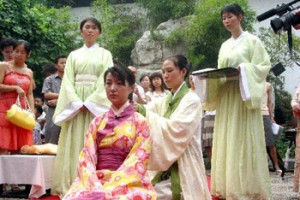 |
|
ji ceremony |
The Han people held the guan and ji ceremonies to signify coming-of-age. The guan ceremony for a young man took place when he reached the age of 20. A venerable senior member of the clan organized the event in the ancestral temple on a suitably auspicious day. After coiling the young man's hair into a bun or coil, the elder would place three caps on his head and give him an adult name with a significant connotation.
The female equivalent ritual, also held in the ancestral temple, was called the ji ceremony, which took place when a young woman reached the age of 15. On that day her hair would be gathered up and fastened with the ji, or hairpin and she would also be given a grown-up name.
China's ethnic minorities have spectacular coming of age ceremonies.
Black Teeth and Tattoos
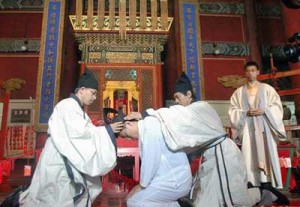 |
|
Guan Ceremony |
Young men and women of the Dai and Blang ethnic minorities who have reached the age of 15 or 16 dye their teeth black to signify having reached adulthood. Any who fail to complete this ritual are socially ostracized. Dai and Blang boys of 14 or 15 years old also have tattoos on their legs to signify their manhood.
Grown-up Trousers and Skirts
The Mosuo, Naxi, Pumi and Yi ethnic minorities hold the coming-of-age ceremony for young men and women when they reach the age of 13. It consists of placing one foot on a side of fat pork and the other on a bag of rice, symbolizing ample food for all their lives. There is also a clothes-changing ceremony. A boy's maternal uncle dresses him in new trousers, belt and broadsword, and a girl's mother clips up her hair, puts earrings on her and dresses her in a skirt. The Yi people consider the skirt-changing ceremony as important as marriage. Only female family members and friends of the girl concerned are invited to the ritual.
Slaughter an Ox and Chant Homilies
The Jinuo minority hold a lavish ceremony for their boys when they become men at the age of 15 or 16. The boy's parents first buy an ox to sacrifice to their ancestors, butcher the beast and share it with their fellow villagers, including their son. The village elder leads the villagers in chanting maxims to reinforce the boy's character that include traditional customs, rituals, work skills and methods, and courtship, wedding and marriage rituals. At the end of this complex ceremony, the boy's parents present him with farming tools and a new suit of clothes.
Tiaoyuntai (jumping off a high platform)
A Yao patriarch leads boys aged 15 or 16 in their climb up to the high platform, or yuntai, which is the main aspect of their coming-of-age ritual. The ceremony signifies that they are now considered adults and as such have defined moral and religious duties. When patriarch and boy stand on the high platform, the former reads out a list of commandments, and the boy responds by swearing not to kill, burn, loot, abduct or rape women, abuse his parents, or falsely accuse innocents. Having made this oath, patriarch throws a lighted torch into water, symbolizing the boy’s fate if he fails to uphold it. The boy then wraps his arms around his knees and jumps into the straw-filled net woven from vines held out by his fellow villagers. As soon as he hits the net, the crowd pulls it outward and to run in a circle with it. They then praise the boy's bravery and congratulate him on his entry into adult Yao society.
Art
 more
moreBamboo carving in China
Bamboo, together with pine and plum, is known as one of the "three g...
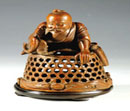
Sedan chair: the most popular veh...
A sedan chair is a human or animal-powered transport vehicle for car...

Peking Opera master lives on
This year marks the 115th anniversary of the birth of Mei Lanfang...
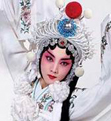
Custom
 more
moreMartial Arts
The Chinese Wuxia Film:Hero (2002)
Hero (Chinese: 英雄) is a 2002 Chinese wuxia film, directed by Zhang Y...
The Southern Staff
Nangun event at the 10th All China GamesThe Nangun (南棍, literally "s...
The Martial Art and Chinese Literature
The earliest literature work on the martial art or chivalrous ch...





 print
print  email
email  Favorite
Favorite  Transtlate
Transtlate 